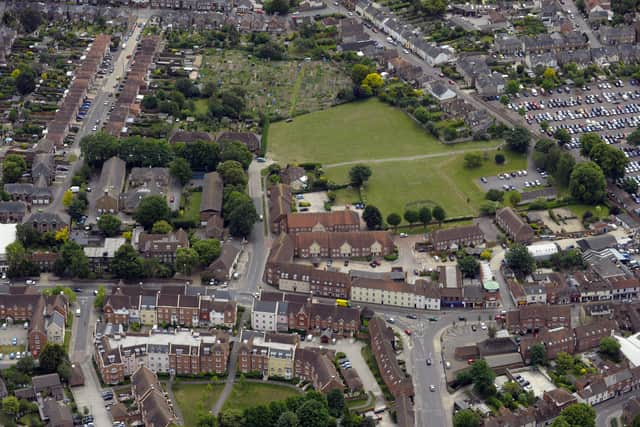Chichester needs more than just ‘a lot more houses’


We need a lot more houses, according to Geoff Conway (Opinion, January 27).
Yes we do. We also need a lot more roads, cycle paths, recreational areas, hospitals, schools and their playing fields, clinics, sewerage-treatment capacity, safe recreational waters, urban green space, as well as fully trained doctors, nurses, teachers, police officers and lorry drivers.
Advertisement
Hide AdAdvertisement
Hide AdThe UK has several means for delivering housebuilding including first-time buyer subsidies, a developer-friendly planning system, lower development taxes and reduced planning obligations.
Nonetheless I have great regard for the selfless concern for those in housing need as expressed by your correspondent Mr Conway.
However, he seems to have missed the point that was incorporated in the Conservative Party’s election manifesto of 2019 which swept them to power. The commitment was to ensure that infrastructure should precede housing development.
Alas, along with many other commitments that were made, it has been quietly dropped.
Advertisement
Hide AdAdvertisement
Hide AdUnsurprisingly the most common objections raised to yet more housing proposals from developers is the absence of such infrastructure whether it be road or sewerage capacity, absence of school places or miserly recreational public open space.
The environmental performance of the homes in terms of regulations also lags far behind what is technically possible.
The commitments to walkable and cyclable place-making with good design standards has also gone by the board. The commitment to local community engagement made by previous Conservative and coalition governments has been abandoned and we have been led into an oft-disastrous spiral of ‘planning-by-appeal’ involving remote government inspectors who decide what is best for us.
Last year, the government too recognised that the planning system was broken. Its solution under Robert Jenrick was to further enhance the power of the developers while blunting still further the discretion of local democracy.
Advertisement
Hide AdAdvertisement
Hide AdUnsurprisingly the reaction from all those involved in trying to make the crippled system work was hostile.
Jenrick was dumped, Gove came in promising to protect the legacy of town and country and enhance the natural environment. We await the outcome from him having received the petition of over 5,000 people concerned over unsustainable level of house-building on the coastal plain delivered at the end of last Saturday’s mass demonstration of protest.
It is worth remarking that the huge efforts made after the Second World War to reconstruct Britain and provide sufficient homes for a growing economy, replace those bombed in the blitz, and the slums and blighted areas required a strong planning system with an ability to designate national parks (NPs) and areas of outstanding natural beauty (AONBs).
The relevance of the recent review of the latter, undertaken by Julian Glover, is most timely. It reminds us that not only are the NPs and the AONBs such a wonderful resource of the nation, but also the connection between them is also significant if we are to avoid the habitat fragmentation involved in protecting little islands of nature in a sea of urban sprawl.
For reader Geoff Conway’s letter see: Chichester needs ‘a lot more new houses’
Comment Guidelines
National World encourages reader discussion on our stories. User feedback, insights and back-and-forth exchanges add a rich layer of context to reporting. Please review our Community Guidelines before commenting.